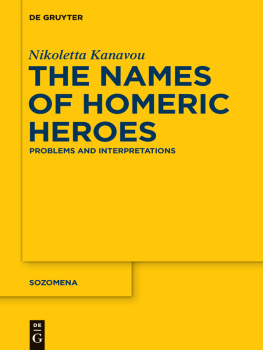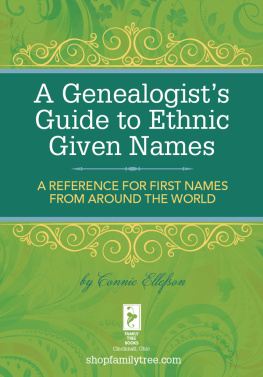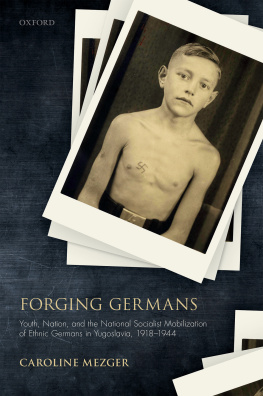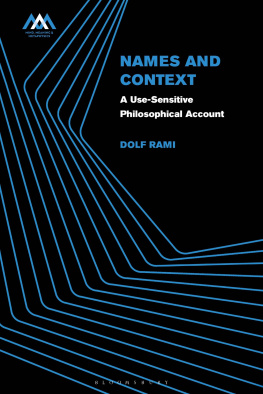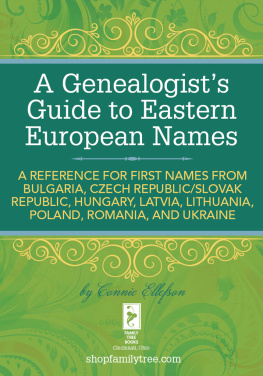EMPTY SIGNS, HISTORICAL IMAGINARIESAUSTRIAN AND HABSBURG STUDIES
General Editor: Howard Louthan, Center for Austrian Studies, University of Minnesota
Before 1918, Austria and the Habsburg lands constituted an expansive multinational and multiethnic empire, the second largest state in Europe and a key site for cultural and intellectual developments across the continent. At the turn of the twentieth century, the region gave birth to modern psychology, philosophy, economics and music, and since then has played an important mediating role between Western and Eastern Europe, today participating as a critical member of the European Union. The volumes in this series address specific themes and questions around the history, culture, politics, social and economic experience of Austria, the Habsburg Empire and its successor states in Central and Eastern Europe.
Recent volumes:
Volume 27
Empty Signs, Historical Imaginaries: The Entangled Nationalization of Names and Naming in a Late Habsburg Borderland
goston Berecz
Volume 26
Men under Fire: Motivation, Morale and Masculinity among Czech Soldiers in the Great War, 19141918
Ji Huteka
Volume 25
Nationalism Revisited: Austrian Social Closure from Romanticism to the Digital Age
Christian Karner
Volume 24
Entangled Entertainers: Jews and Popular Culture in Fin-de-Sicle Vienna
Klaus Hdl
Volume 23
Comical Modernity: Popular Humour and the Transformation of Urban Space in Late Nineteenth-Century Vienna
Heidi Hakkarainen
Volume 22
Embers of Empire: Continuity and Rupture in the Habsburg Successor States after 1918
Edited by Paul Miller and Claire Morelon
Volume 21
The Art of Resistance: Cultural Protest against the Austrian Far Right in the Early Twenty-First Century
Allyson Fiddler
Volume 20
The Monumental Nation: Magyar Nationalism and Symbolic Politics in Fin-de-sicle Hungary
Blint Varga
Volume 19
Tropics of Vienna: Colonial Utopias of the Habsburg Empire
Ulrich E. Bach
Volume 18
Sacrifice and Rebirth: The Legacy of the Last Habsburg War
Edited by Mark Cornwall and John Paul Newman
For a full volume listing, please see the series page on our website:
http://berghahnbooks.com/series/austrian-habsburg-studies.
EMPTY SIGNS, HISTORICAL IMAGINARIES
The Entangled Nationalization of Names and Naming in a Late Habsburg Borderland
goston Berecz
First published in 2020 by
Berghahn Books
www.BerghahnBooks.com
2020 goston Berecz
All rights reserved. Except for the quotation of short passages for the purposes of criticism and review, no part of this book may be reproduced in any form or by any means, electronic or mechanical, including photocopying, recording, or any information storage and retrieval system now known or to be invented, without written permission of the publisher.
Library of Congress Cataloging-in-Publication Data
Names: Berecz, goston, author.
Title: Empty signs, historical imaginaries : the entangled nationalization of names and naming in a late Habsburg borderland / goston Berecz.
Description: First edition. | New York : Berghahn Books, 2020. | Series: Austrian and Habsburg studies ; vol 27 | Includes bibliographical references and index.
Identifiers: LCCN 2019048164 (print) | LCCN 2019048165 (ebook) | ISBN 9781789206340 (hardback) | ISBN 9781789206357 (ebook)
Subjects: LCSH: Names, Personal--Hungary. | Names, Personal--Political aspects--Hungary. | Names, Geographical--Hungary. | Names, Geographical--Political aspects--Hungary. | Names, Hungarian. | Names, Romanian.
Classification: LCC CS2910 .B47 2020 (print) | LCC CS2910 (ebook) | DDC 929.4/209439--dc23
LC record available at https://lccn.loc.gov/2019048164
LC ebook record available at https://lccn.loc.gov/2019048165
British Library Cataloguing in Publication Data
A catalogue record for this book is available from the British Library
ISBN 978-1-78920-634-0 hardback
ISBN 978-1-78920-635-7 ebook
Lenknek, Bertnak e a Carla
CONTENTS

ILLUSTRATIONS

Maps
Illustrations
Figures
Tables
ACKNOWLEDGEMENTS

My first word of gratitude goes to those who have read all or parts of the manuscript in its various incarnations and have commented on it: Balzs Trencsnyi, Maciej Janowski, Tomasz Kamusella, Judit Pl, Robert Nemes, Monika Bar, Christian Karner and Pieter Judson. I spent parts of the research and writing period in Bucharest and Munich as an International Fellow in New Europe College, in Florence as a Max Weber Fellow at the European University Institute, and in Leiden on a Doctoral Research Support Grant from Central European University. Further thanks are due to Victor Kardy, Luminia Dumnescu and Tams Farkas for permission to access and use their large research databases, to Nigel Smith and Michael Gnat for polishing my English, to Zsombor Bartos-Elekes for useful suggestions, to the late Mihly Hajd for his copy of Andrs Mezs Adatok, to Nndor Brdi and Gbor Egry for references on interwar Transylvania, to Piotr Kisiel and Justyna Walkowiak for access to their unpublished manuscripts, to Adela Hncu for her native Romanian expertise, to dm Kolozsi and Lily Iuga for hard-to-find material, to Viktor Lagutov for introducing me to QGIS, and, last but not least, to Susan Gal and Irina Marin for warm encouragement. Finally, I recognize the staff of the Szchnyi Library of Budapest, the Central University Library of Cluj, the Academy Library of Bucharest and the Ostlesesaal of the Bavarian State Library in Munich, who humoured my very numerous, unusual and seemingly incoherent requests without a word. All disclaimers apply.
NOTES ON TEXT

It is fitting to add to a book on names a few clarifications about my own use of names.
I have tried to restore the Romanian names of people who appear under Hungarian forms in the sources, but were to all appearances Romanian. This has led to disputable results at times, but even these I found preferable to keeping the Hungarian name forms. A few people with known double loyalties will figure under double names like Grigore Moldovan/Moldovn Gergely.


